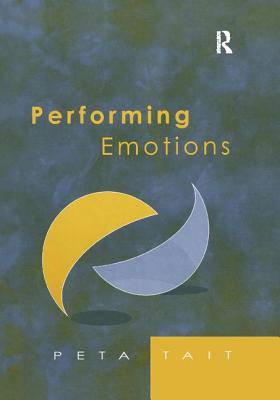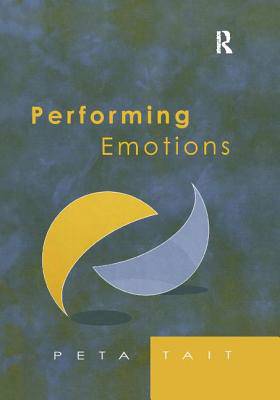
- Retrait gratuit dans votre magasin Club
- 7.000.000 titres dans notre catalogue
- Payer en toute sécurité
- Toujours un magasin près de chez vous
- Retrait gratuit dans votre magasin Club
- 7.000.0000 titres dans notre catalogue
- Payer en toute sécurité
- Toujours un magasin près de chez vous
Description
In Performing Emotions, Peta Tait's central argument is that performing emotions in realism is also performing gender identity. Emotions are phenomena that are performable by bodies, which have cultural identities. In turn, these create cultural spaces of emotions. This study integrates scholarship on realist drama, theatre and approaches to acting, with interdisciplinary theories of emotion, phenomenology and gender theory. With chapters devoted to masculinity and femininity specifically, as well as to emotions generally, it investigates social beliefs about emotions through Chekhov's four major plays in translation, and English language commentaries on Constantin Stanislavski's direction (of the play's first productions) and his approaches to acting, and Olga Knipper's acting of the central women characters. Emotions exists as social relationships; they are imagined and embodied as gendered. Tait demonstrates how theatrical emotions are predicated on social performances and vice versa. In Chekhov's plays, which came to dominate a twentieth century theatre of emotions, characters interpret their emotions intertextually in relation to other theatrical and fictional narratives of emotions. Tait here interrogates these plays as sustained explorations of the inherent theatricality of characters expressing emotions from their phenomenological awareness. A theatrical language of gendered interiority is produced in the acting of emotions in Stanislavski's early realistic theatre. Alternatively, remapping the performances of emotional bodies can destabilise the culturally constructed boundary separating an inner, private self and an outer, social self in culturally produced geographies of emotions. As Tait shows, emotions can be performed as indivisible spatialities. Performing Emotions integrates theories of theatre, gender identity and emotion to investigate how sexual difference impacts on the representations of emotions. The book develops an accumulative analysis of the meanings of emotions in twentieth century realist drama, theatre and acting.
Les avis
Nous publions uniquement les avis qui respectent les conditions requises. Consultez nos conditions pour les avis.







